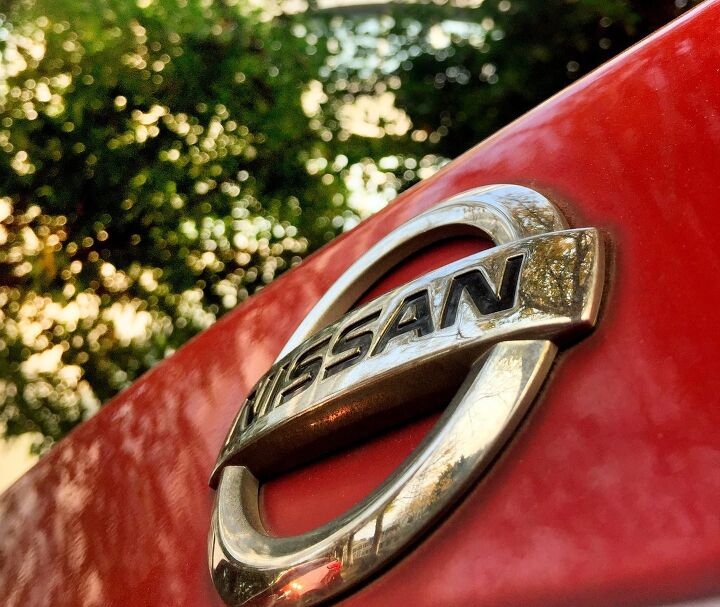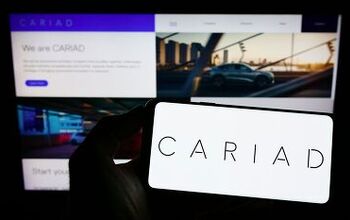Take It or Leaf It: Nissan is Selling Its Battery Building Business to the Chinese

Earlier this month, Nissan announced it was in the final stages of sealing a deal to sell its entire EV battery business to Chinese investment firm GSR Capital. The sale includes battery plants in Tennessee, England, and Japan, with a preamble where the Japanese automaker has to buy up minority shares of Automotive Energy Supply Corp. from NEC Corp.
From there, it can sell off the business to GSR for a cool $1 billion — which isn’t a bad deal for the Chinese company. Nissan used around $1.4 billion in government funds building its U.S. factory in 2010, and the remaining plants weren’t exactly cheap to build. So why is Nissan selling them off?
For starters, the Leaf hasn’t been the sales leader the manufacturer hoped for. Even though global deliveries surpassed the 250,000-unit milestone in December 2016, Leaf sales don’t go beyond 50,000 units annually. By electric vehicle metrics, that’s still a win. However, the Tennessee factory is capable of producing 200,000 complete EV battery packs a year — well beyond the company’s current needs.
Reports point to the next-generation Leaf coming equipped with a less competitive power source and a more competitive price tag. Industry rumors have the 2018 model possessing a range of 143 miles per charge. That’s well below the 215-mile range of the Tesla Model 3 and the 238-mile range of the Chevrolet Bolt, both of which compete in the same segment as the Leaf.
Nissan hasn’t revealed its marketing plan for the new EV, but it’s assumed the car will come with several battery options and a base price $5,000 lower than the Bolt’s. Higher trim levels may even bridge the range gap. But, even with moderate sales, Nissan still needs to acquire its batteries from somewhere. In fact, its Tennessee assembly plant exists side-by-side with its EV battery factory and is part of the deal with GSR.
It’s difficult to see how this benefits the Japanese automaker. While GSR gets to become an important battery supplier for Chinese customers, Nissan gets to purchase its own hardware after having sold off the factories.
“This will enable GSR to grow its business and look for other opportunities,” Nissan North America spokesman Brian Brockman told Automotive News. “It will give them the scale to further develop their batteries and look for other opportunities.”
While altruism is its own reward, there isn’t usually a lot of money in it. But, by handing the battery business off, Nissan has alleviated some of the financial risks associated with production and engineering. It may have bit off more than it could chew and didn’t want to hold onto a side business it wasn’t taking full advantage of.
“The battery business alone will not make money, you have to have scale, you have to have the supply chain,” said GSR chairman Sonny Wu. “It’s a bloody, cutthroat game. The auto OEMs will lock you in for five years.”
Nissan has been selling stakes in other businesses, including parts supplier Calsonic Kansei and forklift manufacturer UniCarriers, to better focus on developing superior electric powertrains and autonomous driving technology. Nissan is also looking to push into Southeast Asia with smaller, more traditional automobiles since its purchase of a controlling stake in Mitsubishi Motors.
Under GSR ownership, the battery company will continue as the exclusive supplier of the Leaf’s power source.

A staunch consumer advocate tracking industry trends and regulation. Before joining TTAC, Matt spent a decade working for marketing and research firms based in NYC. Clients included several of the world’s largest automakers, global tire brands, and aftermarket part suppliers. Dissatisfied with the corporate world and resentful of having to wear suits everyday, he pivoted to writing about cars. Since then, that man has become an ardent supporter of the right-to-repair movement, been interviewed on the auto industry by national radio broadcasts, driven more rental cars than anyone ever should, participated in amateur rallying events, and received the requisite minimum training as sanctioned by the SCCA. Handy with a wrench, Matt grew up surrounded by Detroit auto workers and managed to get a pizza delivery job before he was legally eligible. He later found himself driving box trucks through Manhattan, guaranteeing future sympathy for actual truckers. He continues to conduct research pertaining to the automotive sector as an independent contractor and has since moved back to his native Michigan, closer to where the cars are born. A contrarian, Matt claims to prefer understeer — stating that front and all-wheel drive vehicles cater best to his driving style.
More by Matt Posky
Latest Car Reviews
Read moreLatest Product Reviews
Read moreRecent Comments
- Jrhurren Worked in Detroit 18 years, live 20 minutes away. Ren Cen is a gem, but a very terrible design inside. I’m surprised GM stuck it out as long as they did there.
- Carson D I thought that this was going to be a comparison of BFGoodrich's different truck tires.
- Tassos Jong-iL North Korea is saving pokemon cards and amibos to buy GM in 10 years, we hope.
- Formula m Same as Ford, withholding billions in development because they want to rearrange the furniture.
- EV-Guy I would care more about the Detroit downtown core. Who else would possibly be able to occupy this space? GM bought this complex - correct? If they can't fill it, how do they find tenants that can? Is the plan to just tear it down and sell to developers?


































Comments
Join the conversation
Why couldn't Nissan start up its hybrid unit? Many auto makers are still making hybrids. Toyota is still selling hybrid vehicles in many of its model including its Lexus brand. Honda released the newer Accord hybrid and it possibly may release the Civic hybrid again. Why did Nissan pull the hybrid model off production when hybrids are still selling? The Nissan Rogue now has a hybrid model.
Nissan obviously believes that EV sales will not be ramping up anytime soon. This means that they are now predicting any or all of the following: 1) EV subsidies will soon be reduced or eliminated, 2) Battery costs are not coming down nearly as fast as predicted, 3) Current Lithium batteries are going to be displaced by another technology requiring a different production process and obsoleting Lithium oriented factories.